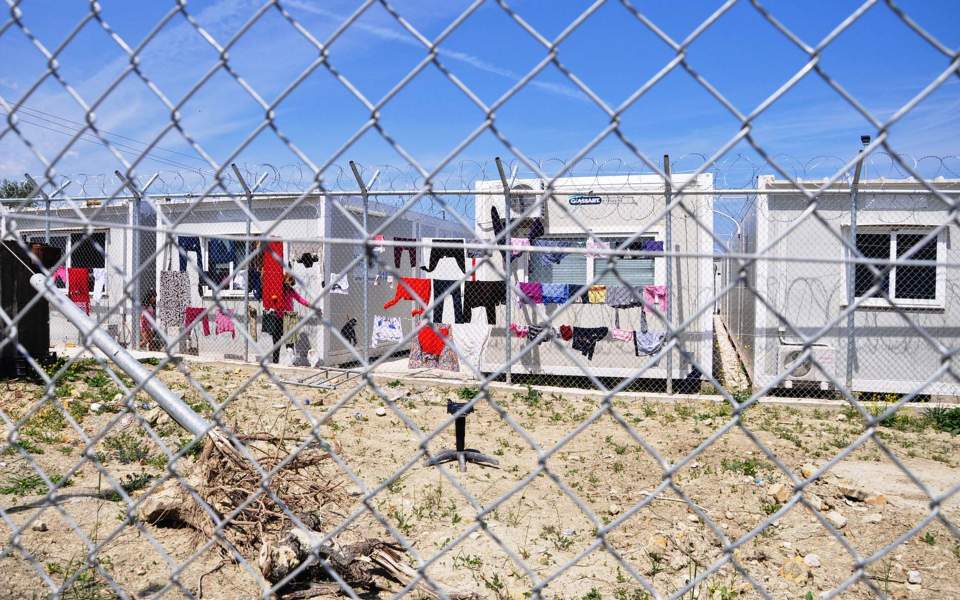Turks rescue Chios’s tourism sector as European visitor numbers wane

When the discussion turns to business, Chios travel agent Tassos Hatzelenis says that the influx of tourists coming from Turkish shores – only 20 minutes away by speedboat – has “saved” the eastern Aegean island’s tourism sector. “On the day of the recent [Turkish general] elections, there were people who voted and then came over for coffee,” said Dimitris Kibrilakis, head of the island’s rooms-to-let owners’ association. “Twelve of my 14 rooms are currently being rented by Turks.”
In contrast to the rising number of Turkish visitors, a sharp decline has been observed in those coming from elsewhere in Europe. In 2010, for instance, 12,079 European nationals visited the island, while in 2014 only 8,220 Europeans came from the beginning of the year through October. According to local professionals, one of the reasons behind this marked decline in tourist interest is a reduction in the number of charter flights to and from the island – down from 15 flights per week a few years ago to about four nowadays. There are fewer charter flights, they claim, because of the island’s unsuitable airport infrastructure, among other reasons.
“A French family wishing to visit Chios has to spend about 850 to 900 euros each for plane tickets,” noted Kibrilakis. The country’s ongoing crisis doesn’t make it any easier. “I get phone calls from my European clients asking me if the reality of the situation is reflected in what they see on television.”
While Western travelers seem to be turning their back on Chios, those coming from the East appear to be fully embracing the island. The number of Turkish arrivals is increasing rapidly: In 2013, 56,299 Turks visited the island, while they numbered 64,401 between January and October last year. Meanwhile, estimates for this year’s arrivals are more than promising. Greek consular authorities across Turkey issued about 56,000 visas from the beginning of the year up to May, a figure pointing to a 24 percent increase compared to the previous year (the highest rise in visas issued was recorded at the Greek Consulate in Izmir, with the figure reaching 60 percent). The change in attitude is no coincidence. In 2010, local professionals foresaw the kind of impact the crisis was going to have on the tourism industry and started pushing for Turks to have easier access to the Aegean islands.
Chios has benefited immensely from the change in climate. “About 600 to 700 people arrive on weekends, while 50 to 100 people visit during the week (that is excluding the strictly high tourist season). If you exclude the Turkish visitors from the market, the island is vegetating,” said Hatzelenis. Proximity also offers Chios a comparative advantage: “Many wealthy Turks own villas on the Turkish shores and come over for a change of scenery, just for a couple of days.”
A recent report compiled by the island’s regional authority examines the incoming Turkish visitors’ profiles: 65.19 percent are university graduates, 43.70 percent are self-employed, while 51.85 percent said their visit was neither their first nor their last.
The next most popular Greek island for Turks is Lesvos, an island which is rapidly turning into a hip destination. In the first 10 months of 2014, the number of Turks vacationing on Mytilene came to 42,180.
“A number of leading pharmaceutical companies are organizing conferences on Mytilene. About a dozen have taken place so far, while in some cases high-flying executives get company-paid trips to the island as a bonus,” Mytilene travel agent Aris Lazaris told Kathimerini.
“At the same time we also host a lot of VIPs,” noted Lazaris, citing actress Deniz Cakir, businesswoman Guler Sabanci and Turkey’s highest paid actor, Kenan Imirzalioglu, the star of highly popular TV series “Ezel.”
Meanwhile, the Greek islands are still an ideal solution for travelers on smaller budgets. “The middle class cannot afford the skyrocketing prices at Turkey’s luxury beach resorts,” said Lazaris. In Greece they can eat, drink and dance at affordable prices. “The recent instability in Turkey after the elections makes me wonder,” he added. “Whereas up to now 1 euro translated into 2.8 Turkish lira, the exchange rate is now 3.12 Turkish lira.”





